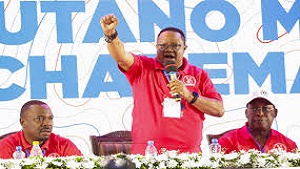By Michael Mbewe
The mission, which includes troops from Malawi, South Africa (SA), Tanzania, and the Congolese Armed Forces is focused on combating armed groups destabilising the area.
SA’s Defence Minister, Angie Motshekga, addressed the media on the complex situation, following the tragic loss of three SA soldiers. Motshekga emphasised that SA’s approach is centred on peaceful resolution rather than military conquest. "The war will only end when all parties are willing to negotiate," she said, underscoring the importance of dialogue over force.
The deaths of the SA soldiers were attributed to miscommunication during clashes between DRC and Rwandan forces, with the M23 rebel group unintentionally firing over their heads. In response, a ceasefire was brokered, and Motshekga confirmed that no further attacks have occurred since.
Motshekga also addressed concerns over the adequacy of SA's military resources, explaining that reinforcements were requested as a precaution due to the intensity of fighting in Goma. The safety of the troops was a top priority, she clarified, noting that supplies were not the primary issue.
As diplomatic efforts continue, SA's President Cyril Ramaphosa is engaging with all parties involved in the conflict, including Rwanda, which is accused of exacerbating the situation. Regional powers, including Angola and Tanzania, are also playing a key role in mediating peace talks.
Deputy Defence Minister General Bantu Holomisa pointed to budget cuts since 1998 as contributing to some of the challenges faced by SA's Defence Force. However, he welcomed Ramaphosa's commitment to boosting military funding.
Meanwhile, SA’s Minister of International Relations and Co-operation, Ronald Lamola, reassured the public that SA forces are operating under the United Nations peacekeeping mandate, which prohibits attacks on peacekeepers. The priority remains a cessation of hostilities, with ongoing diplomatic efforts aimed at achieving lasting peace.
--ChannelAfrica--












